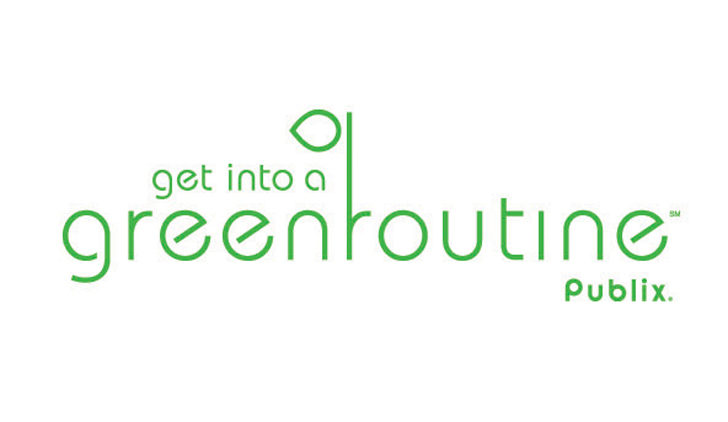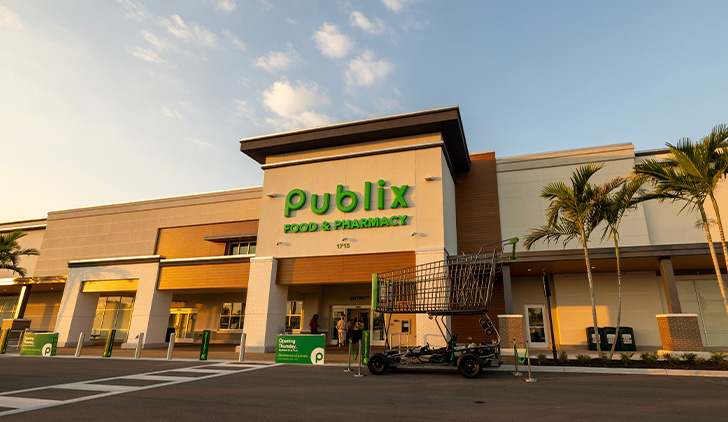
Get into a green routine is something we’ve all heard at Publix. The program started in 2001 to help educate and communicate how associates can incorporate environmentally responsible habits in their daily routine.
Through the green routine program, our recycling efforts at Publix have improved year after year. In her role as program manager of the green routine program, Recycle & Solid Waste Manager Kim Brunson works with business areas to identify items that can be recycled and reused, or consider more earth-friendly options. Since last year, we’ve added several more recyclable items.
“Our recycling rate has increased from 41 percent in 2007 to 53 percent in 2012,” said Kim. “Publix is a team, and recycling for a company our size depends on our retail and support associates operating as one to achieve the best results.”
Stores collect mixed paper, post-consumer plastic, stretch wrap, hard plastics, cardboard, and wax cardboard and chipboard for recycling. Retail associates must remember to collect and place these items in their store’s designated recycling area, and once there’s enough, send them to the return center. Associates play the biggest role in Publix’s recycling efforts.
One unique quality of our recycling process is using Publix trucks to pick up stores’ recyclable items, along with other returns, and deliver them to one of our return centers, which saves time, reduces costs and improves service. Many other companies don’t have their own transportation resources available and have to pay third party vendors to pick up their recyclables.
When a Publix truck arrives at the return center, recyclable items are sorted and inspected for contaminants, cleanliness, and size and weight, and then combined into bigger bundles. Other returns like pallets and milk crates are set aside for delivery to our warehouses and manufacturing plants. The return center negotiates with recycle vendors to purchase our recyclable items to avoid sending them to the landfill. They also find new items and research whether they can be recycled too.
“Recycling saves resources and helps the environment, but it’s also another way for associates to do their part for Publix and the communities we serve,” said Kim. “Through recycling, Publix saves millions of dollars in disposal costs and generates revenue.”
Ask your manager what can be recycled in your department.


